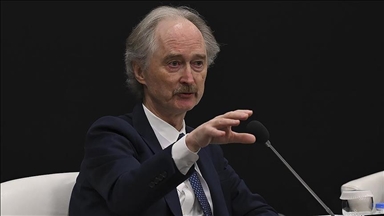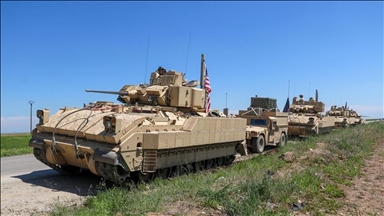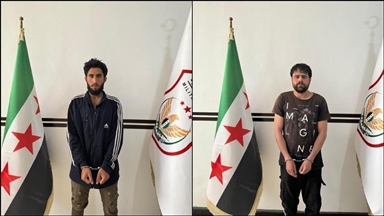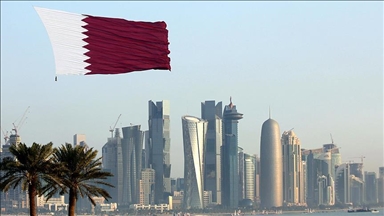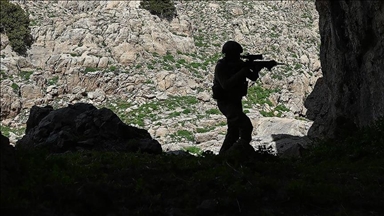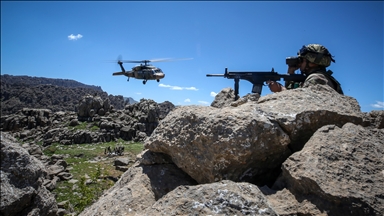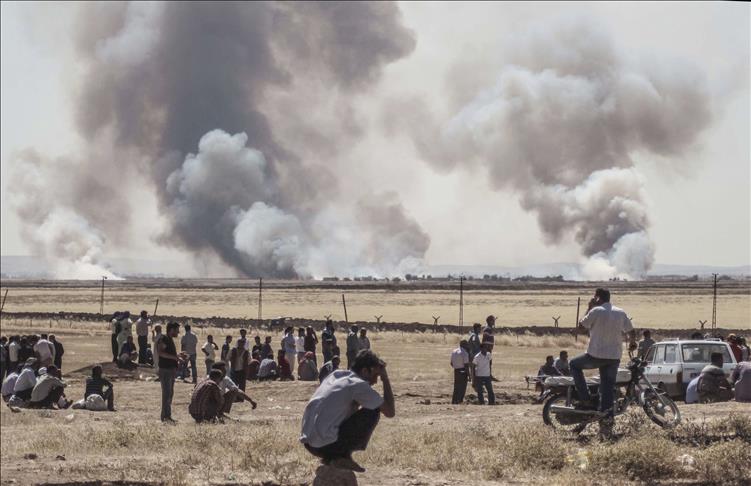
SANLIURFA, Turkey
Daesh ‘sleeper cells’ lying in wait in central Kobani were involved in Thursday morning’s attack targeting Kurdish forces in Syria, Turkish security sources have said.
Nearly two dozens of people were killed and at least 130 others wounded as Daesh militants mounted an early-morning attack in Kobani with two bomb-laden vehicles and subsequent clashes between Syrian Kurdish forces and the Sunni extremist group.
The sources told Anadolu Agency that the death toll is actually higher but it is impossible to get reliable information for now as clashes are still continuing in Kobani.
Turkish authorities’ have strongly rejected claims made by Syrian state television and by some Kurdish politicians that Daesh militants crossed through Turkish territory to strike Kobani.
"The claims that the Daesh militants who mounted the suicide attack had entered the region from Turkey does not reflect reality," said a statement from Sanliurfa Governorate on Thursday.
Calling the claims “baseless”, the statement said that Daesh militants infiltrated Kobani from Syria's Jarablus city at around 5 a.m. local time (0200 GMT) and staged the car-bomb suicide attack.
"We will share the images [of evidence] as soon as possible with the public," said the governor's office, calling for common sense from the Turkish public "as there might be people who want to provoke the sensitive situation in the region".
The spokesperson for the YPG, the military wing of the Syrian Democratic Union Party (PYD), Redur Halil said Thursday the group did not dispute Turkey’s stance.
"The Daesh militants infiltrated into the town from the west and south," Halil told Anadolu Agency in a written statement.
Halil added that the militants entered the town and detonated the bomb-laden vehicle, after which the clashes broke out.
Turkey considers the YPG a terrorist organization.
During remarks to the press in Ankara, Turkish Deputy Prime Minister Numan Kurtulmus called the allegations regarding Daesh militants’ entry into Kobani black propaganda and argued that "certain dirty circles" are trying to turn Turkey into a target on the pretext of the attack in Kobani.
"As they always did, they are trying to make Turkey the subject of a smear campaign," he said.
Kurtulmus said that as of Thursday afternoon, Turkey received 134 people injured in the Daesh attack on Kobani. One had died in Syria, and three others died at hospital in Turkey.
Nesrin Hamo, a resident of the Berhtan village 15 kilometers from Kobani, said Daesh militants were dressed in the YPG uniforms during the early morning attack that hit the town.
Hamo said she saw the trucks that carried armed men into the village, adding: "All of a sudden, they entered homes and opened fire on everyone indiscriminately, [including] women and children.
"They opened fire on me while I was lifting my child from bed, and my husband was killed there," she added.
Meanwhile, during another attack on Kobani's district center, Daesh seized buildings called the “quadruple security belt” which were used by Syrian-Kurdish forces as headquarters.
Fierce clashes are also reported to have intensified around the buildings.
According to a statement released by the anti-Bashar-al-Assad Syrian Revolution Coordinators' Union (SRCU), Daesh militants mounted the morning attack with two bomb-laden vehicles while disguised as Kurdish fighters.
The blast occurred near Turkey's Mursitpinar border crossing in the Suruc district of southeastern Sanliurfa province in the early hours of Thursday.
In the past few weeks, Turkey has been witnessing another massive inflow of Syrian refugees from the city of Tell Abyad and nearby areas, as they flee clashes between Daesh and the YPG.
On Monday, the YPG and opposition groups -- operating under the name of Burkan al-Firat -- took the northern Syrian village of Ali Bajiliyah near Raqqa -- considered a Daesh stronghold -- according to eyewitnesses.
A U.S.-led international coalition has been providing support to the YPG.
The YPG forces, working in tandem with Burkan al-Firat, recently seized control of Tell Abyad, after which the YPG reportedly forced other opposition factions to leave the city.
Anadolu Agency website contains only a portion of the news stories offered to subscribers in the AA News Broadcasting System (HAS), and in summarized form. Please contact us for subscription options.


